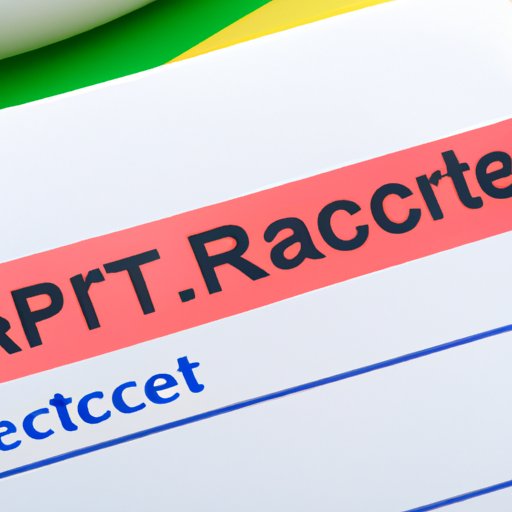Introduction
The COVID-19 pandemic has undoubtedly changed the way we travel. As countries around the world attempt to control the spread of the virus, many have implemented travel restrictions, quarantine measures, and COVID-19 testing requirements for travelers. One of the types of COVID-19 tests that have gained significant attention in this process is the RT-PCR test. In this article, we will explore the acceptance of RT-PCR tests for travel, the pros and cons of using them, the countries that accept them, and why they are becoming the gold standard for travel during the pandemic.
Navigating Travel Restrictions: Understanding the Acceptance of RT-PCR Tests
As travel restrictions vary significantly across different countries, travelers face several challenges when planning their trips. Some countries have banned all non-essential travel, while others have imposed strict quarantine measures for travelers. COVID-19 testing requirements are also increasingly common. In many cases, travelers are required to show a negative COVID-19 test result before departure or upon arrival.
RT-PCR tests, or real-time reverse transcription-polymerase chain reaction tests, are a type of COVID-19 test that detects the virus’s genetic material. This type of test is considered the gold standard for diagnosing COVID-19 and is currently the most accurate in detecting the virus. Unlike other types of COVID-19 tests, such as rapid antigen tests, RT-PCR tests require specialized laboratory equipment and trained professionals to administer and process them.
Understanding the different travel restrictions and COVID-19 testing requirements can be challenging for travelers. However, RT-PCR tests have become a top choice for those who wish to travel internationally during the pandemic.
The Pros and Cons of Using RT-PCR Tests for Travel: A Comprehensive Guide
RT-PCR tests are highly accurate and reliable in detecting COVID-19, making them a popular choice for travelers who want to ensure they are not carrying the virus. They also have a high sensitivity rate, meaning they can detect even small amounts of the virus in a sample. However, there are some potential drawbacks to using RT-PCR tests for travel.
One of the main disadvantages is the cost. RT-PCR tests are generally more expensive than other types of COVID-19 tests, and some travelers may not be willing or able to pay the high cost. Another challenge is the processing time. As RT-PCR tests require specialized laboratory equipment and trained professionals, it may take several days to receive the test results. For travelers on tight schedules, this may not be a feasible option.
Despite these potential drawbacks, many travelers still prefer RT-PCR tests over other types of COVID-19 tests. Their high accuracy and reliability make them ideal for those who want to ensure they are not carrying the virus.
COVID-19 Testing for Travel: Surveying the Acceptance of RT-PCR Tests
As the pandemic continues to affect the travel industry, many countries have implemented COVID-19 testing requirements for travelers. The requirements vary from country to country, and some have specific requirements for the type of COVID-19 test that travelers need to take.
Currently, many countries accept RT-PCR tests for travel. However, the requirements for these tests vary widely. For example, some countries require travelers to take an RT-PCR test within 72 hours of departure, while others require the test to be taken within 96 hours. Some countries also require travelers to take a second test upon arrival or quarantine for a specific period.
Travelers who want to use RT-PCR tests for travel should research their destination’s specific requirements to ensure compliance and avoid any unpleasant surprises upon arrival.
Why RT-PCR Tests are Becoming the Gold Standard for Travel During the Pandemic
As mentioned previously, RT-PCR tests have become the preferred choice for COVID-19 testing for travel. One reason for this is their high accuracy and reliability. RT-PCR tests have a high sensitivity rate and can detect even small amounts of the virus in a sample, making them the most accurate of all COVID-19 tests currently available.
Another reason is the increased availability of RT-PCR tests. As many countries now require COVID-19 testing for travel, demand for RT-PCR tests has increased, and as a result, more labs and facilities have begun offering this type of testing.
Overall, RT-PCR tests have become the gold standard for COVID-19 testing for travel due to their high accuracy rate, reliability, and increased availability.
Your Guide to RT-PCR Tests for International Travel: Which Countries Accept Them and Which Don’t?
Here is a comprehensive list of countries that currently accept RT-PCR tests for travel:
- United States
- Canada
- United Kingdom
- France
- Germany
- Italy
- Spain
- Japan
- Australia
- New Zealand
It’s important to note that the requirements for RT-PCR tests vary widely between different countries. Travelers should research their destination’s specific requirements to ensure compliance and avoid any unpleasant surprises upon arrival. Recently, some countries have become stricter in their requirements for RT-PCR tests due to the emergence of new COVID-19 variants. For example, some countries now require additional documentation or certification confirming the laboratory that processed the test’s results.
Conclusion
In conclusion, RT-PCR tests have become the preferred choice of COVID-19 testing for travel due to their high accuracy, reliability, and increased availability. However, travelers should be aware of the different requirements that countries have for RT-PCR tests and should research their destination’s specific requirements to ensure compliance and avoid any unpleasant surprises upon arrival. While RT-PCR tests may have some potential drawbacks, their accuracy and reliability make them a popular choice for travelers who want to ensure they are not carrying the virus.
(Note: Is this article not meeting your expectations? Do you have knowledge or insights to share? Unlock new opportunities and expand your reach by joining our authors team. Click Registration to join us and share your expertise with our readers.)
